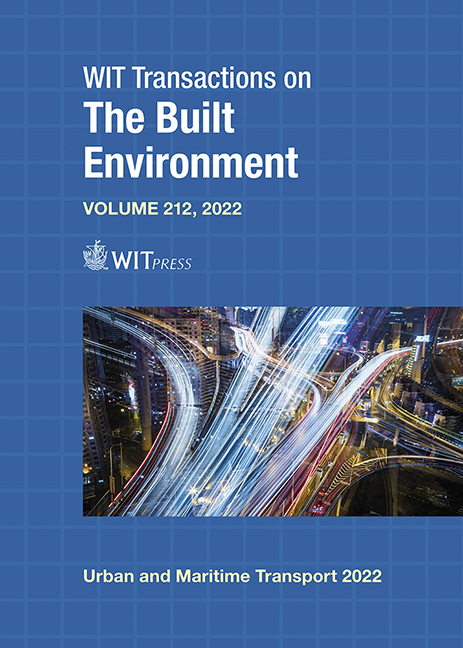SUSTAINABLE MOBILITY, TRANSIT-ORIENTED DEVELOPMENT, AND TRAVEL BEHAVIOR: A TRAVEL PATTERN ANALYSIS
Price
Free (open access)
Transaction
Volume
212
Pages
10
Page Range
37 - 46
Published
2022
Paper DOI
10.2495/UMT220041
Copyright
Author(s)
AYA HASAN ALKHEREIBI
Abstract
This research proposes an inclusive travel pattern classification model, in support of sustainable mobility and transit oriented development to develop homogeneous activity groups for a sample of laborers in the State of Qatar. The investigated model aims to classify the activity data into a homogenous travel pattern. A pattern recognition model is applied to a revealed preference (RP) survey for the travel diary of 1,051 laborers. In the first phase of the analysis, raw data preprocessing algorithms and outliers data detection and filtering algorithms were applied and, therefore, an activity-based displacement matrix was developed for each household. The research methodology commenced in this research encompasses the integration of several machine learning (ML) techniques, mainly utilizing clustering and classification methods. A bagged clustering algorithm was used to recognize the clusters’ number, and then the implemented CMeans algorithm and Pamk algorithm were used to validate the results. Meanwhile, the interdependencies between the resulting clusters and the socio-demographic characteristics of the household were examined using cross-analysis. The results of the study found that there was a notable diversity between clusters in terms of trip purpose, modal split, choice of destination, and occupation. Clustering techniques on all three attributes produced similar results, but clustering based on occupation yielded clusters that differed significantly from those based on other attributes. Applying such pattern recognition models to large and complex activity datasets could help transportation planners better understand the travel needs of segments of the population and formulate more informed strategies that compromise the best practices of sustainable mobility and transit-oriented development.
Keywords
travel behavior, transportation planning, activity-based model, machine learning, support vector machine, blue collar travel diary




